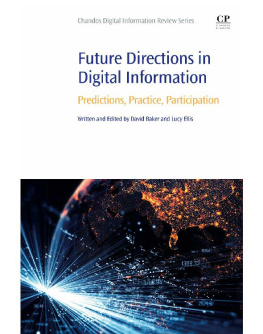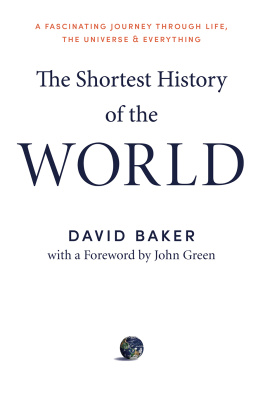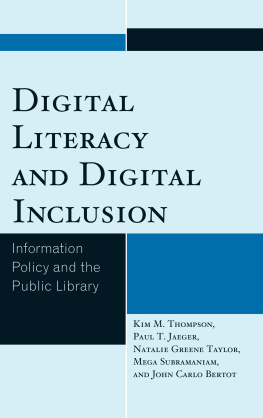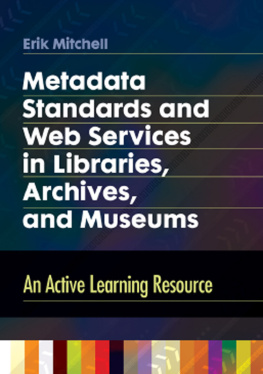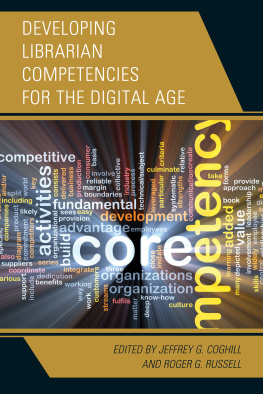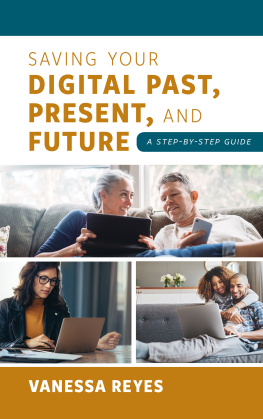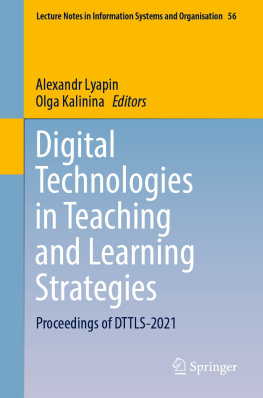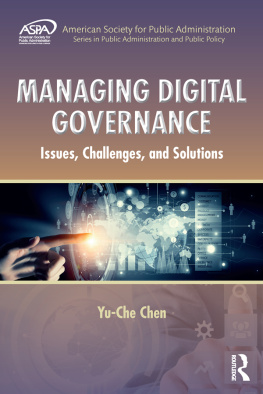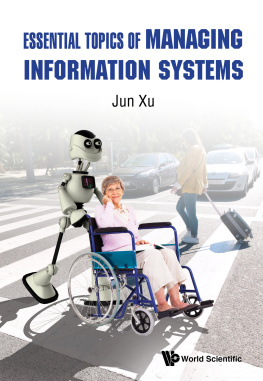This chapter introduces the purpose and aims of the book and provides an overview of each of the 19 chapters in terms of methodological approach and what they tell us about the future of digital information. Subheadings indicate the major areas of discussion that emerge from the whole and which reflect the issues of our time that occupy the minds and principles of scholars and practitioners. The chapter takes a look at the source of trends in digital information access and provision and considers the current issues and contexts for service innovation. The discussion of the key themes is reinforced and augmented by the results of the Delphi exercise and by selected thought pieces both of which are presented in text boxes.
Keywords
COVID-19; Public memory; Digital disruption; Delphi study; Digital education and training; Service innovation; Digital-first; Harvester paradigm; Digital literacy; Digital inclusiveness
1.1: Introduction
In his foreword to the last Digital Information Review , Nick Poole (Poole, in is a summation of the themes discussed and explored throughout Future Directions in Digital Information: Predictions , Practice , and Participation. Both chapters are underpinned by the results of the Delphi exercise that David Baker undertook and the thought pieces that he and Lucy Ellis commissioned. This material always appears in text boxes. Where there is no attribution, the text is a synthesis of the Delphi participants responses; otherwise, the content is an authored thought piece.
1.2: COVID-19
The world is already much changed from when Future Directions in Digital information was first conceived and contracts signed. It will no doubt be further transformed before the Coronavirus epidemic is a memory; or rather a whole series of memories that will need to be preserved for the future. As far as possible the current and likely future impacts of COVID-19 are discussed: longer-term implications are considered in the last chapter; emerging trends (as far as they can be discerned) are referred to in this chapter. It has long been a self-evident truth that the more things change, the more they can never be the same (Allan Veaner, quoted in .
Public memory
While academic biographies and fictional books in contemporary settings will offer future generations some idea about life in our era, it is the general publicwhich naturally includes library usershaving lived through the reality of the situation, that is an invaluable source of data. Several projects, such as the Mass Observation Archive which is part of the University of Sussexs Special Collections, have already implemented this notion: collecting diaries, written memories, and photographs from participants, for posterity.
Different generations have different views and have undergone different experiences. Those who lived through the Second World War, for example, will have had a different childhood from the current youth; even with the COVID-19 pandemic bringing about government measures unseen since that earlier era. People of a similar age living in different areas and economic zones will have greatly varying experiences from one another.
By interacting with the public through workshops, interviews and other memory gathering projects, libraries and education bodies will help ensure this lived data is not lost forever with the passage of time.
Hannah Myers
Walker Morris, Leeds, United Kingdom
1.3: Environments and ecosystems; digital disruption and paradigm shifts
Vitality, unpredictability, rapidity; instability, turbulence: words that describe the environment in which digital information is being provided, managed, stored accessed, applied, and exploited. All the evidence points to this being true regardless of Coronavirus, both now and for the foreseeable future. Digital ecosystems evolve organically like any ecosystem, this can result in unplanned complexity () are likely to be driven especially by digital disruption, climate change impacts and tensions between national and global trends.
Schpfel and Azerouals chapter talks of the fourth paradigm: data-intensive scientific discovery, a new way of doing science based on information and communication technology. They and others argue that the interdisciplinary nature of education necessitates new paradigms. Will there be Education 4.0 as a result of the Fourth Industrial Revolution, discussed later in this book? While Martin Hamilton () rightly advises caution when it comes to technologies that are at the peak of the hype cycle, there is little doubtas evinced by the chapters, thought pieces and Delphi responsesthat there will be disruption if not an outright revolution in library and information provision in the coming years, not least because societies themselves will be subject to rapid and radical change.
Society will be open to disruption in social relationships as technology is, apparently, more socially disruptive than previously thought, leading to changes in the traditional systems of kinship. Technology has great power to increase socialization, albeit in new ways, rather than breaking it down. Websites allow you to share thoughts and hobbies with people across the globe. Social media are playing a significant role in enabling families and friends to stay closely in touch. People would feel much more isolated without the various video and audio channels now freely available to communicate. There will be more mobility, more distance communication, more knowledge between cultures, greater collaboration in commerce and industry, more optimization in research and potentialization of new discoveries.
Societys needs change and develop over time, so the library's objectives need to be revisited and reflected on periodically to ensure they are still valid and workable. The challenge comes when the library wants to collaborate and offer a service for all (economies of scale, increase access to information), while the parent institution is in competition with others and needs the library to contribute to giving the parent institution an edge over others.
reinforce this latter concept, with reference to the development and adoption of mobile learning, the use of games and social media in education and training at all levels as a means of distilling new knowledge and/or making sure this knowledge is understood and thus used by the learners.
Games and education
Video games have often been decried as the enemy of learning: a distraction for children and teenagers, taking them away from homework and leading them to stare at a screen for minutes or hours at a time. Yet the appealing mechanics of video games, that addictive element that brings players back for more, is being implemented by educational apps to lure in learners. Education itself is being gamified.
One example is the language learning app, Duolingo. As an educational tool, it breaks down several languages into bite-sized lessons that are easy to work through, utilize your phone's microphone and auditory technology to test speaking and listening in addition to reading and writing (or rather, typing). However, to help players form a daily studying habit, game elements are added. The app keeps track of how many days in a row you study: your streak. You are enrolled in leagues, with the chance of progression if you earn enough points through your studies. Players earn treasure for meeting goals, which can be spent on rewards such as a streak freeze, little outfits for the app's mascot, or even wagered against yourself that you'll maintain your current streak for so many days. These additions elevate the app beyond being a simple electronic workbook. They make learning more fun and encourage you to push yourself that little bit harder: to take an extra lesson to reap the rewards. Ultimately, this reward is both increased knowledge of a language as well as the game-style bonuses, justifying their existence. Even mainstream video games on other platforms offer educational potential. Minecraft, the immensely popular world builder often talked about in school playgrounds, can be used to teach the coding language Python, opportunity libraries have seized by offering workshops. The game offers a familiar, recognizable environment for children to learn this new skill, taking away the pressure of the classroom and encouraging learning through enjoyment. With the video game market unlikely to fade away any time soon, librarians and educators should continue to explore their appealing elements to benefit their learning activities.

